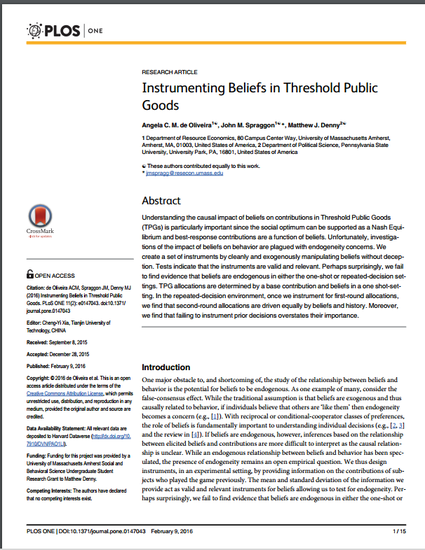
Article
Instrumenting Beliefs in Threshold Public Goods
PLOS ONE
(2016)
Abstract
Understanding the causal impact of beliefs on contributions in Threshold Public Goods (TPGs) is particularly important since the social optimum can be supported as a Nash Equilibrium and best-response contributions are a function of beliefs. Unfortunately, investigations of the impact of beliefs on behavior are plagued with endogeneity concerns. We create a set of instruments by cleanly and exogenously manipulating beliefs without deception. Tests indicate that the instruments are valid and relevant. Perhaps surprisingly, we fail to find evidence that beliefs are endogenous in either the one-shot or repeated-decision settings. TPG allocations are determined by a base contribution and beliefs in a one shot-setting. In the repeated-decision environment, once we instrument for first-round allocations, we find that second-round allocations are driven equally by beliefs and history. Moreover, we find that failing to instrument prior decisions overstates their importance.
Keywords
- Public goods,
- Experimental Economics,
- Beliefs
Disciplines
Publication Date
February 9, 2016
DOI
10.1371/journal.pone.0147043
Citation Information
Angela C. M. de Oliveira, John M. Spraggon and Matthew J Denny. "Instrumenting Beliefs in Threshold Public Goods" PLOS ONE (2016) Available at: http://works.bepress.com/john_spraggon/11/
